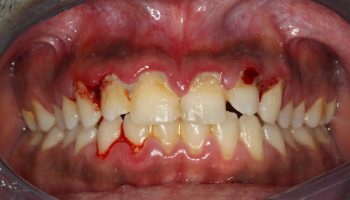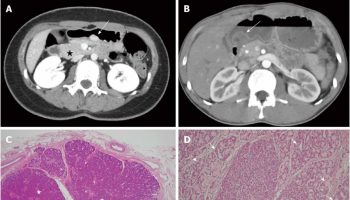What is interpersonal therapy
Interpersonal therapy focuses on social roles and relationships as a method of treating depression 1. Interpersonal therapy explicitly endeavors to instill hope and enhance expectation for change 2. The patient works with a therapist to evaluate specific problem areas in the patient’s life, such as conflicts with family or friends or significant life changes. While past experiences help inform the process, interpersonal therapy focuses on improving relationships in the present.
Through use of the medical model, interpersonal therapy seeks to create a new narrative for the patient, demystifying and externalizing the current problem as something the patient has rather than a defining aspect of who s/he is. Through use of the sick role, interpersonal therapy seeks to decrease demoralization and guilt due to past social failures and the burden of current expectations, increase motivation for change (as it is the role of the patient to now get well), and emphatically validate the patient’s current distress. interpersonal therapy explicitly values and builds on the supportive role of the therapeutic relationship. Common factors are now broadly acknowledged to account for much of psychotherapy’s benefits 3. Indeed, much of the power of interpersonal therapy’s punch may come from how it incorporates and optimizes common therapy factors 4.
Interpersonal therapy is typically short-term (lasting two to four months or until symptoms subside), though it can continue up to two to three years depending on the patient’s needs. Interpersonal therapy focuses on four basic problem areas:
- Role disputes
- Role transitions
- Unresolved grief
- Interpersonal deficits
The goals of interpersonal therapy include identifying problems, expressing emotions in healthy ways and learning skills to improve current relationships.
Numerous practice guidelines have recommended interpersonal therapy as one of the two psychological treatments of choice for unipolar depressive disorders the other being cognitive-behavioral therapy (CBT), both as an independent treatment and in combination with pharmacotherapy 1. Interpersonal therapy is a form of psychotherapy that focuses on you and your relationships with other people. Interpersonal therapy is based on the idea that personal relationships are at the center of psychological problems. Although interpersonal therapy has demonstrated efficacy for mood and other disorders, little is known about how interpersonal therapy works.
Interpersonal therapy is unique in that it focuses on one or two specific problem areas and is designed to bring about a rapid reduction in symptoms. Other benefits include:
- Improved relationships
- Skills for coping in healthier ways
- Enhanced problem-solving and communication skills
- Ability to process grief or loss in a safe environment
- Reduction of self-destructive or hostile behaviors
Although numerous randomized controlled trials have examined the effects of interpersonal therapy, only one meta-analysis has been conducted to evaluate interpersonal therapy for depression 5. That analysis included a total of 13 studies and found significant and large effects for interpersonal therapy compared with placebo or no treatment, and superior effects of interpersonal therapy compared with cognitive-behavioral therapy (CBT). A substantial number of studies of interpersonal therapy have been published since then.
Cuijpers et al 1 identified 38 randomized trials (with a total of 4,356 patients) examining the effects of interpersonal therapy. Compared with control groups, we found a moderate to large effect of interpersonal therapy in the acute treatment of depression. They also found some indications that interpersonal therapy had less efficacy than selective serotonin reuptake inhibitor (SSRI) pharmacotherapy. However, the overall difference was small, not all analyses were significant, and the number of studies in this subsample was small.
Cuijpers et al 1 found indications that combination treatment with interpersonal therapy and pharmacotherapy was somewhat more efficacious than pharmacotherapy alone, although this difference reached significance only when the HAM-D was used as an outcome measure. However, the effect size was also small, and again this subsample of studies was relatively small, limiting statistical power. In a larger meta-analysis of studies comparing combination treatments with psychotherapy and pharmacotherapy and pharmacotherapy alone, they found that combination treatments were significantly better than pharmacotherapy alone 6. Furthermore, combination treatment may have greater efficacy for patients with more severe or chronic major depression 7.
Cuijpers et al 1 did not find that interpersonal therapy had greater efficacy than other psychotherapies, including CBT, although the number of studies was too small to draw definite conclusions. Interpersonal therapy is the only type of psychotherapy for depression aside from CBT that has been compared with control groups, other psychotherapies, antidepressant medication, and combination treatments. Other types of psychotherapy are far less well examined. At present, therefore, interpersonal therapy and CBT may be considered the best options for psychological treatments for depression. There is no indication that interpersonal therapy is superior to CBT, and the two seem equally effective overall. Whether to prescribe CBT or interpersonal therapy should depend on patient preference and moderating factors based on differential therapeutics 8.
Interpersonal therapy techniques
Interpersonal therapy is a time-limited psychotherapy initially developed to treat major depression 9 and subsequently adapted and studied for treatment of bipolar disorder 10, dysthymic disorder 11, bulimia nervosa 12, binge eating disorder 13, social anxiety disorder 14, panic disorder 15, and posttraumatic stress disorder 16, among other disorders. interpersonal therapy has been adapted and studied to treat depression in adolescents 14, the elderly 17, and special populations including depressed HIV-positive patients 18 and patients with mild cognitive impairment 19. Typically administered individually, interpersonal therapy has been used in group 13, conjoint interpersonal therapy 20, and telephone formats. Its standard approach uses 12–16 weekly sessions to acutely treat a syndrome. Monthly maintenance interpersonal therapy treatment has demonstrated efficacy in preventing recurrence of major depression 21.
Interpersonal therapy usually begins with your therapist conducting an interview. You and your interpersonal therapy therapist together define a central interpersonal problem (a current crisis or predicament) that serves as the primary treatment focus. The interpersonal problem falls into one of four empirically-derived categories:
- Grief – a complicated bereavement reaction following the death of a loved one, with difficulty reestablishing satisfying interpersonal ties in the absence of the deceased;
- Role transition – an unsettling major life change (e.g., an illness, birth of a child, retirement);
- Role dispute – a conflict, overt or covert, in an important relationship (e.g., with spouse, parent, boss);
- Interpersonal deficits – social isolation.
Interpersonal therapy has three phases. The initial phase (typically sessions 1–3) includes:
- Evaluation – diagnosing the syndrome and any comorbid conditions and conducting the interpersonal inventory – a thorough review of current and past relationships;
- Providing the case formulation, which defines the target diagnosis within the medical model, providing the patient with the transitional sick role 22, and linking this diagnosis to the focal interpersonal problem area; and
- Agreeing on the treatment plan. The formulation 23 provides the interpersonal problem focus through which interpersonal therapy seeks to activate the change mechanisms described in this report.
- The middle phase (sessions 4–9) comprises the main work of resolving the interpersonal problem.
- The final phase (sessions 9–12) involves direct discussion of termination, reviewing improvement, consolidating gains, and anticipating future problems.
Based on the problems you describe, they can identify goals and create a treatment outline. You and your therapist will focus on the key issues you’re looking to resolve. A typical program involves up to 20 weekly hour-long therapy sessions.
interpersonal therapy is not about finding an unconscious origin of your current feelings and behavior. In this way, it is unlike other forms of psychotherapy. interpersonal therapy instead focuses on the current reality of your depression. It looks at how more immediate difficulties are contributing to symptoms. Depression symptoms can complicate personal relationships. This often causes people with depression to turn inward or act out.
Feelings of depression often follow a major change in your life. These changes fall into one of four categories:
- complicated bereavement — the death of a loved one or unresolved grief
- role transition — the beginning or ending of a relationship or marriage or diagnosis of a disease
- role dispute — a struggle in a relationship
- interpersonal deficit — the absence of a major life event
Your therapist will attempt to identify events in your life that lead to your depression. They will try to equip you with the skills you need to direct difficult emotions in positive ways.
You may be encouraged to take part in social activities that you found stressful or painful in the past. This can be a way of practicing new coping techniques.
Research supports interpersonal therapy as a tool to treat depression. It has also been adapted to treat other disorders, including:
- Depression as a result of disease, such as HIV
- Depression as a result of caregiving
- Drug or alcohol addiction
- Eating disorders
- Bipolar disorder
- Dysthymia
- Borderline personality disorder
- Marital disputes
- Panic disorder
- Protracted bereavement
- Substance abuse.
- Cuijpers P, Geraedts AS, van Oppen P, Andersson G, Markowitz JC, van Straten A. Interpersonal psychotherapy for depression: a meta-analysis [published correction appears in Am J Psychiatry. 2011 Jun;168(6):652]. Am J Psychiatry. 2011;168(6):581–592. doi:10.1176/appi.ajp.2010.10101411 https://www.ncbi.nlm.nih.gov/pmc/articles/PMC3646065
- Eleventh Emil A. Gutheil memorial conference. Therapeutic factors in psychotherapy. Frank JD. Am J Psychother. 1971 Jul; 25(3):350-61.
- Evidence-based therapy relationships: research conclusions and clinical practices. Norcross JC, Wampold BE. Psychotherapy (Chic). 2011 Mar; 48(1):98-102.
- The importance of responding to negative affect in psychotherapies. Markowitz JC, Milrod BL. Am J Psychiatry. 2011 Feb; 168(2):124-8.
- A systematic review of research findings on the efficacy of interpersonal therapy for depressive disorders. de Mello MF, de Jesus Mari J, Bacaltchuk J, Verdeli H, Neugebauer R. Eur Arch Psychiatry Clin Neurosci. 2005 Apr; 255(2):75-82.
- Cuijpers P, Dekker J, Hollon SD, Andersson G. Adding psychotherapy to pharmacotherapy in the treatment of depressive disorders in adults: a meta-analysis. J Clin Psychiatry. 2009;70:1219–1229.
- Rush AJ, Thase ME. In: Psychotherapies for depressive disorders: a review, in Depressive Disorders: WPA Series Evidence and Experience in Psychiatry. Maj M, Sartorius N, editors. John Wiley & Sons; Chichester, UK: 1999. pp. 161–206.
- Sotsky SM, Glass DR, Shea MT, Pilkonis PA, Collins JF, Elkin I, Watkins JT, Imber SD, Leber WR, Moyer J, Oliveri ME. Patient predictors of response to psychotherapy and pharmacotherapy: findings in the NIMH Treatment of Depression Collaborative Research Program. Am J Psychiatry. 1991;148:997–1008.
- Klerman GL, Weissman MM, Rounsaville BJ, Chevron ES. Interpersonal psychotherapy of depression. New York: Basic Books; 1984.
- Two-year outcomes for interpersonal and social rhythm therapy in individuals with bipolar I disorder. Frank E, Kupfer DJ, Thase ME, Mallinger AG, Swartz HA, Fagiolini AM, Grochocinski V, Houck P, Scott J, Thompson W, Monk T. Arch Gen Psychiatry. 2005 Sep; 62(9):996-1004.
- Psychotherapy for dysthymic disorder. Markowitz JC. Psychiatr Clin North Am. 1996 Mar; 19(1):133-49.
- How does the social environment ‘get into the mind’? Epigenetics at the intersection of social and psychiatric epidemiology. Toyokawa S, Uddin M, Koenen KC, Galea S. Soc Sci Med. 2012 Jan; 74(1):67-74.
- A randomized comparison of group cognitive-behavioral therapy and group interpersonal psychotherapy for the treatment of overweight individuals with binge-eating disorder. Wilfley DE, Welch RR, Stein RI, Spurrell EB, Cohen LR, Saelens BE, Dounchis JZ, Frank MA, Wiseman CV, Matt GE. Arch Gen Psychiatry. 2002 Aug; 59(8):713-21.
- Open trial of interpersonal psychotherapy for the treatment of social phobia. Lipsitz JD, Markowitz JC, Cherry S, Fyer AJ. Am J Psychiatry. 1999 Nov; 156(11):1814-6.
- An open pilot study of interpersonal psychotherapy for panic disorder (IPT-PD). Lipsitz JD, Gur M, Miller NL, Forand N, Vermes D, Fyer AJ. J Nerv Ment Dis. 2006 Jun; 194(6):440-5.
- A pilot study of interpersonal psychotherapy for posttraumatic stress disorder. Bleiberg KL, Markowitz JC. Am J Psychiatry. 2005 Jan; 162(1):181-3.
- Nortriptyline and interpersonal psychotherapy as maintenance therapies for recurrent major depression: a randomized controlled trial in patients older than 59 years. Reynolds CF 3rd, Frank E, Perel JM, Imber SD, Cornes C, Miller MD, Mazumdar S, Houck PR, Dew MA, Stack JA, Pollock BG, Kupfer DJ. JAMA. 1999 Jan 6; 281(1):39-45.
- Treatment of depressive symptoms in human immunodeficiency virus-positive patients. Markowitz JC, Kocsis JH, Fishman B, Spielman LA, Jacobsberg LB, Frances AJ, Klerman GL, Perry SW. Arch Gen Psychiatry. 1998 May; 55(5):452-7.
- A controlled evaluation of monthly maintenance interpersonal psychotherapy in late-life depression with varying levels of cognitive function. Carreira K, Miller MD, Frank E, Houck PR, Morse JQ, Dew MA, Butters’ MA, Reynolds CF 3rd. Int J Geriatr Psychiatry. 2008 Nov; 23(11):1110-3.
- Conjoint IPT for postpartum depression: literature review and overview of a treatment manual. Carter W, Grigoriadis S, Ravitz P, Ross LE. Am J Psychother. 2010; 64(4):373-92.
- Randomized trial of weekly, twice-monthly, and monthly interpersonal psychotherapy as maintenance treatment for women with recurrent depression. Frank E, Kupfer DJ, Buysse DJ, Swartz HA, Pilkonis PA, Houck PR, Rucci P, Novick DM, Grochocinski VJ, Stapf DM. Am J Psychiatry. 2007 May; 164(5):761-7.
- Illness and the role of the physician: a sociological perspective. PARSONS T. Am J Orthopsychiatry. 1951 Jul; 21(3):452-60.
- Markowitz JC, Swartz H. Case formulation in interpersonal psychotherapy of depression. In: Eells TD, editor. Handbook of psychotherapy case formulation. New York: Guilford Press; 2006. pp. 221–250.





